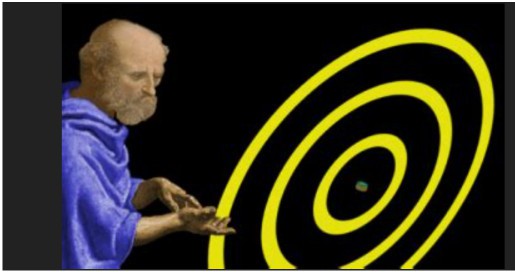Loving Diversity

I’ve never understood why I’ve always enjoyed living in the midst of diverse cultures. In my youth, bored in my suburban white high school, I transferred into an almost all black and Asian inner city school. I loved dwelling in the midst of the new social richness. As an adult, I’ve lived in Hawaii for over thirty years, a minority within a dominant Asian culture. The contrasts between, and mixtures of Asian, Polynesian, Caucasian and a large military population feeds me with a stimulating inner brew.
Recently, I read the theoretical physicist, Carlo Rovelli’s, musings on the ancient Greek Anaximander (610-545 BCE) who developed the basic ideas upon which science and democracy are predicated. This philosopher and his followers understood that a lack of certainty could lead to enquiry and creativity. They rejected mythology as an explanation and replaced it with observation – an openness to uncertain outer realities. They substituted reason – a process of exploring possible theories and subsequent deductions – where faith and scripture once held sway.
Observation and reason are the basis for science and democracy. We see the same forces – of faith versus science and authoritarian doctrine versus the diverse reasonings of the multitude – in our society today.
Anaximander lived in a Greek town, Miletus, in the western part of Anatolia, in between two dominant cultures: Egypt and Mesopotamia. His town was a vital mercantile society exposed to a variety of beliefs. “Civilizations flourish when they mingle,” Mr. Rovelli wrote. The free exchange of ideas led to the assimilation of varied traditions, transforming them into new perceptions. This cauldron of ever-changing assimilation was a way of living with uncertainty and experimenting with fresh possibilities.
I found similar experiences living inside cultures dominated by races and beliefs other than my own. I discovered a constant combustion of novel ideas, combining them with mine and evolving innovative combinations of images and ideas. I went into an artistic field – drawing, painting and design – where I could express these on-going inner fusions.
For me, diversity means creativity and I treasure the resulting inventive thinking. Thanks to Anaximander and Carlo Rovelli, I comprehend and appreciate these processes better.
I have great gratitude that I’ve had the freedom of choice about where to study, where to live, how to reason things out for myself and what I can freely express in my writing and artwork.

Cate Burns is the author of Libido Tsunami: Awash with the Droll in Life, in which she unearths the ludicrous in the emotional live traps surrounding us — in families, friends and disastrous romances. Get it on Amazon today.
